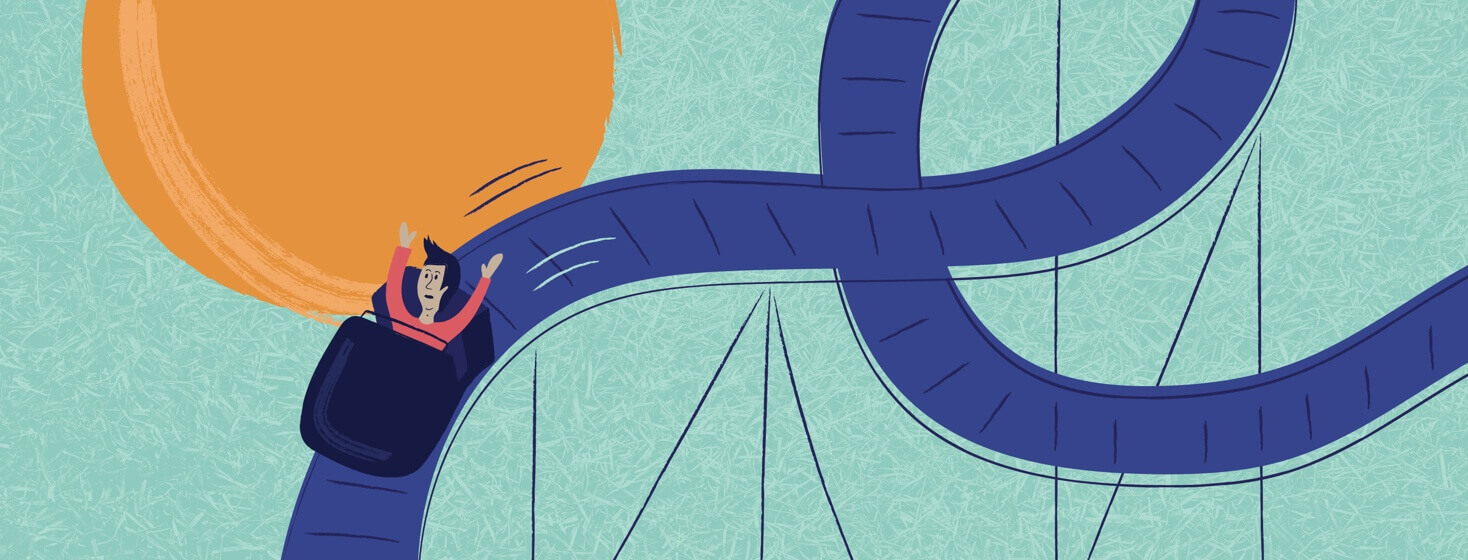2019: The Year of the Bladder Cancer Roller Coaster
Hi, readers. This year (2019), I have not written much because 2019 has been one of the most challenging years since being diagnosed with metastatic bladder cancer in 2015. I thought I would close out this year sharing with you what 2019 has been like for me and why I am ready to say good riddance 2019 and welcome 2020 with open arms.
Dealing with targeted therapy and abdominal pain
December 2018 started with me being on a targeted therapy of immunotherapy and Fibro Growth Factor Receptor (FGFR) oral medication. I did experience a lot of abdominal pain off and on, and sometimes, the abdominal pain so severe I almost would have to go to the emergency room. Sometimes, the abdominal pain would last all day, affecting my quality of life.
Missing out on family time
I remember back to being on a family vacation and things were going great until the next morning after breakfast, I could feel the abdominal pain coming on. The pain lasted all day, causing me to stay in bed and miss a day of vacation time with my family.
I told my oncologist about the pain
I knew one of the side effects of the FGFR medication was abdominal pain, but this pain was so severe and lasted all day; nothing I did would relieve the pain. On my next appointment with my oncologist, I told him about these episodes of abdominal pain. I was quickly scheduled for an endoscopy, a procedure used to examine a person's digestive tract. The procedure indicated nothing was wrong with my digestive tract.
Modifying my diet
Since nothing was wrong, I continued to think the abdominal pain was a side effect of the FGFR medication, and I modified my diet, staying away from foods that, in the past, had triggered abdominal pain. The modification of my diet worked at times, and then at other times, it did not. So, this state of unknown what was causing the relentless abdominal pain continued until May 2019.
Feeling unwell
The first week of May, I was not feeling that great, and my blood pressure was running very high, which concerned me. I knew I had an appointment with my oncologist coming up soon. So, I monitored my BP and kept a record of it to share with my doctor. When I went in to to see my oncologist on May 8th, I was jaundiced, but of course, I did not notice it. I was immediately admitted to the hospital because my bilirubin was outside of the normal limits.
I spent the month of May in the hospital
I spent the month of May in the hospital undergoing various tests and procedures as the team of doctors tried to figure out was going on with me. One procedure I had while in the hospital showed I had a secondary cancer called cholangiocarcinoma - a rare cancer in the slender tubes that carry the digestive fluid bile through the liver. Great! On top of having bladder cancer now, I had to face dealing with a secondary cancer. I was so overwhelmed with information and trying to process the fact that now I have to deal with two different cancers.
Having a major surgery: the Whipple procedure
The gastroenterology team decided the cholangiocarcinoma needed to be removed surgically and sooner than later. So, now I was faced with having a major surgery called a Whipple procedure. Once this surgery was explained, and I did my own research, I started to become very anxious and scared about having this major surgery. I mean, a Whipple procedure is an operation to remove the head of the pancreas, the first part of the small intestine (duodenum), the gallbladder and the bile duct. The remaining organs are reattached to allow you to digest food normally after.
I needed to have the cholangiocarcinoma removed
I really had no choice but to have the surgery and have the cholangiocarcinoma removed so we could get back to focusing on the bladder cancer. I was able to be discharged from the hospital and go home for a week before returning to have what was planned as the Whipple surgery.
The bladder cancer had actually spread to the bile duct
I returned to the hospital in June 2019 and was prepared for the Whipple surgery. I said all my good-byes, gave hugs and kisses to all my family that was there with me. I had no idea what the outcome of this surgery was going to be. After six hours of surgery, and once I was in recovery, I woke up and learned the Whipple procedure was aborted because there was no secondary cancer. Actually, my bladder cancer had moved to the bile duct area, which had not been heard of before. So now, I was the first known patient to have urothelial carcinoma in the bile ducts. During the surgery, the surgeons did remove my gallbladder and several lymph nodes, which involved metastatic urothelial carcinoma.
Looking to the future
Once I was healed from surgery, I started five rounds of MVAC chemotherapy, which is a combination treatment used to treat bladder cancer. The side effects became so severe I did have to stop the treatment, although the treatment did work to shrink the cancer tumors in the bile duct area. Today, there has been no progression of my bladder cancer, and I am glad to put 2019 behind me, and the future looks bright in 2020.
I look forward to sharing more with you in the new year and writing on topics that are relevant to your bladder cancer journeys — all the best in 2020.
Editor’s Note: With heavy hearts, we regret to inform readers that on February 27, 2021, Curtis passed away from stage IV bladder cancer. Curtis’s advocacy efforts and writing continue to impact many. He will be deeply missed.

Join the conversation